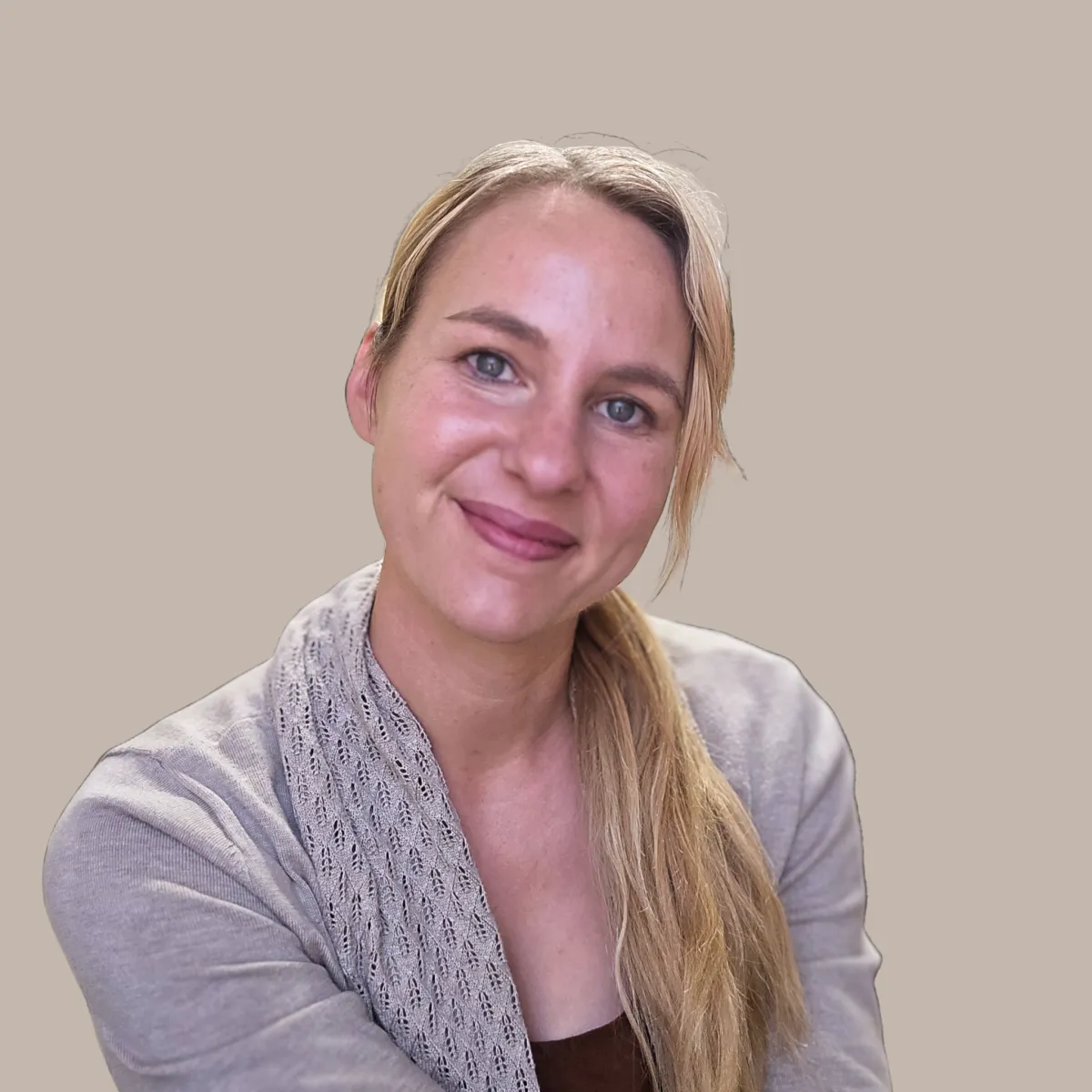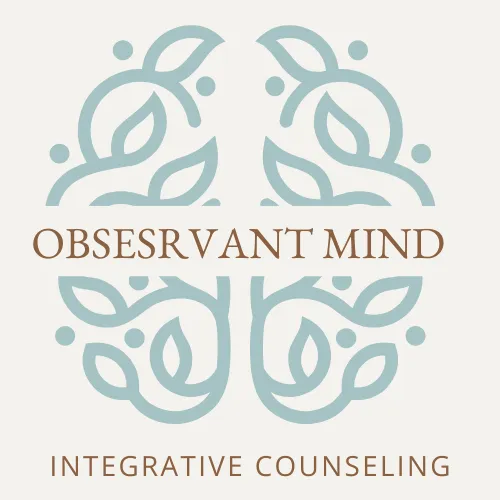about Leah
Relationships are not meant to be so hard,
But I struggled to let people get too close to me for a long time.

The biggest shifts in my life happened during major transitions—having a baby, leaving the military, ending a long-term relationship.
During those times of upheaval, I saw how much I had been relying on survival strategies to protect myself—avoiding vulnerability, pushing people away before they could reject me, and seeking external validation through my physical appearance and professional success.
I deeply wanted genuine connections, but I sabotaged relationships without realizing it.
I kept others at arm’s length, afraid that if I showed my true self, I wouldn’t be accepted. These strategies left me feeling disconnected, unworthy, and caught in a cycle of proving my worth, without ever feeling truly seen or loved for who I was.
But when I finally reached out for help, I realized something life-changing: these things aren’t innate—they’re learned.
That meant I could UNlearn them, and I did! This is great news friend, because I am proof you can unlearn patterns and beliefs that no longer serve you too!
I'd be honored to show you how.
My own healing journey has given me a deep passion for helping others break free from cycles of generational trauma and learn how to truly connect—with themselves, with others, and with the life they want.
I think back to the time I first reached out for help, I felt lost and like the walls were collapsing in on me. I can appreciate now how pain was the catalyst for radical healing.
It forced me to confront deep-seated grief and anger I had stored away since childhood, the belief that I wasn’t lovable, the perfectionism I used to try to earn love.
Working through all of that transformed my relationship with myself, my partner, and my children. It gave me a deeper capacity for connection than I ever thought possible.
And that’s why I do this work.
To hold space for others as they navigate their own healing, to help them reconnect with the parts of themselves that have been buried, and to show them— no matter where you come from, no matter what you’ve been through, deep connection and healing are possible.
The only way out is through...
...there is no bypassing the hard feelings...
but After experiencing the freedom on the other side,
It is my mission to help liberate others!
Q&a with leah
How does talking to someone help?
Most conversations we have in our daily lives are superficial. We are constantly filtering our thoughts, words, and actions to maintain social norms because we desire approval and acceptance. Unfortunately, this means the opportunity to fully put down the social mask is rare.
The opportunity to talk to someone without the fear of being judged is freeing. Having all the restrictions and expectations stripped away creates a space to be vulnerable, and we can express the uncomfortable, embarrassing, and even "shameful" things that are bothering us. It is important to have this space, because when feelings are silenced they tend to grow and can become quite scary.
The ability to give voice to your inner turmoil and have it reflected back gives clarity and insight. The very act of applying words to our experiences, feelings, and fears releases some of their energy and power over us. They start to become more manageable, and over time need less attention and resources.
Talking with someone is their ability to offer a fresh perspective and additional resources. It is easy to get stuck in a negative loop and only see the deficits in our lives. An outside perspective can help us find the silver lining, and remind us of our strengths. It is also easier for someone who is not directly affected by a problem to think of possible solutions we may not have.
When facing difficult feelings it is comforting to have someone close. They are able to offer courage during our fear, be a calming source during the chaos, and act as a beacon of light in the darkness. In the event the feelings and thoughts become overwhelming, they can offer tools to ease the intensity. Finally allowing those big emotions to be tolerable and get the attention they need. In turn, the parts that are crying out have the opportunity to be heard, met and find peace.
What is your first question for a client, and why?
“If our time together provided you with everything you need to live your best life, how would you know our work was done?”.
I phrase the question in this way for two reasons.
First, I take a collaborative approach and want to ensure I have clarity about my client's goals right away. Having them explain what their best life looks like, gives us very clear and tangible goals to work towards. This way, I can ensure every decision I make during our time together is in service to their overarching desires.
Second, It invites their mind to drift into a happy place. This shift in thinking allows the mind to accept the possibility of a positive outcome and sets a productive tone for the session.
What is your therapeutic style?
I am warm and collaborative, but I am not a yes man. I will call out patterns and challenge you.
I trust the wisdom of your system and let you set the intention for the session, but I am very active in session and keep us aligned with the set intention.
I believe we learn by doing, so therapy with me is experiential, practicing new skills in session with the invitation to make it an active practice throughout the week.
What is the best thing you have learned from one of your people?
To be transparent, I really struggled with this question, because I don’t know that there is any one best thing!
I think moreover, the best thing I have learned about people is how incredibly resilient people are. It has taught me no matter how ugly the scar, how deep the hole, scary the thought, or traumatic the event there is always hope for healing and growth.
We can overcome our darkest moments, but sometimes we just need a little help finding the light to guide us.
what I nerd out on
Here are my certifications and trainings...
*Master of Arts in Counseling - St. Edward's University
*Bachelor of Arts in Psychology - Columbia College
*Neuroaffective Relational Model (NARM)- Levels 1, 2, and 3 (Masters)
*Interpersonal NeuroBiology - 5 years of supervision with Juliane Taylor-Shore, LPC-S, LMFT-S, SEP
*Integrative Mental Health Professional Certification Training Course
*Maternal Mental Health Intensive Training - Perinatal Mood & Anxiety Disorders | Perinatal Grief & Loss
*Postpartum Nutrition Certification
*Prenatal Yoga Certification
*Heart of Trauma with Dr. Bonnie Badenoch
*Emotional Transformative Therapy - Level 1
*Relational Life Therapy for Couples - Level 1
*Introduction to Internal Family Systems Therapy (IFS)
MODALITIES I INCORPORATE INTO MY WORK
Although I have not completed formal training programs, my work is highly informed by Somatic Experiencing (SE), Internal Family Systems (IFS), and Coherence Therapy (memory reconsolidation).
video proof
Add some video testimonials if you have them. They are really powerful.
DOWNLOAD THE journal
Get started with my top free Self-Compassion Journal
Observant Mind
Integrative Counseling
Therapy in Austin & Greater TX
© observant mind | ALL RIGHTS RESERVED | TERMS & CONDITIONS
